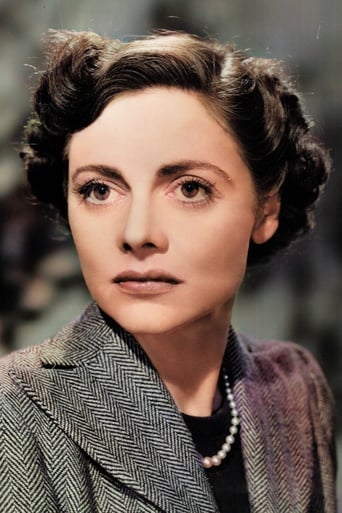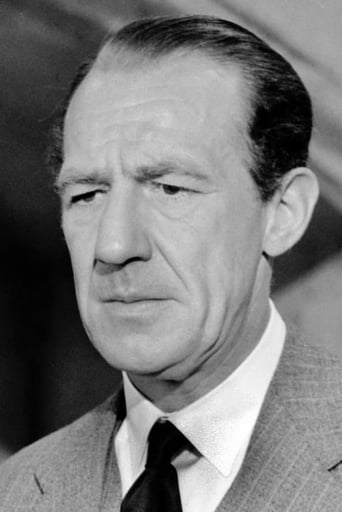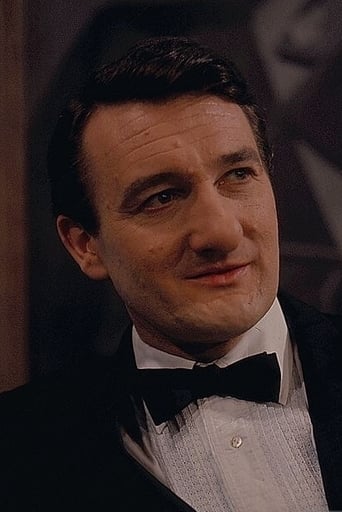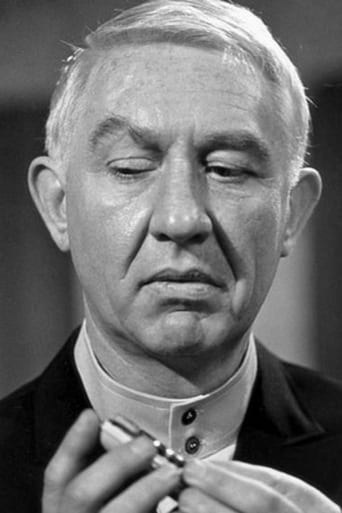Mjeteconer
Just perfect...
CommentsXp
Best movie ever!
Jonah Abbott
There's no way I can possibly love it entirely but I just think its ridiculously bad, but enjoyable at the same time.
Dr Jacques COULARDEAU
This is a simple comedy by Shakespeare. Nothing to deface the world with laughter or to haunt your sleepless nights. But we find in this light comedy some themes that are dear to our playwright. Love, and love, and love. The love of a girl for a boy, of a young woman for a young man, a love that cannot exist because of the social difference between the two. The ingenuity and creativity of the young woman who saves the life of the king with the medical knowledge she received from her father, and the promise of the King to give her any man she wants. She chooses the young man who is well obliged to oblige and get married, which does not mean consume the union. He goes to the war and the young woman is going to follow and with some other young women she will trick him into impregnating her and an exchange of rings will make the situation very difficult for him. So the union has been consumed sort of on the side and the young man graciously accepts his defeat and declares his love. That is slightly artificial but Shakespeare in his comedies at times is slightly superficial. Another theme that is dealt with nicely is the "captain" that takes care of the young noble man we are dealing with when serving in the military. He is a liar, he is a coward, he is also running after skirts as much as he can. Shakespeare disgraces him with some kind of conjuration and he ends up nearly a beggar, stinking to hell and blazes and ready to do anything to get a penny. That's a very simple version of what Falstaff is going to be later but he is funny in some ways though pathetic. The BBC is adding to that play that is mostly taking place in France, and a little in Florence, a setting and costumes that are, in the house of the young man, very close to the Flemish school of painting, Rembrandt and the Van Eyck brothers. That gives to the play a post-Renaissance touch that is slightly surprising.Dr Jacques COULARDEAU, University Paris 1 Pantheon Sorbonne, University Paris 8 Saint Denis, University Paris 12 Créteil, CEGID
kmoh-1
In a sense, there has been too much effort and taste lavished on a problem play that is a long way short of Shakespeare's best. The Vermeer interiors and Rembrandt references look a treat, but (as well as being anachronistic by half a century) add weight where there is little in the text. A number of the performances do the same, including Angela Down's magnificent Helena, and Paul Brooke's Lavache, the least clownish, and most accountant-like, clown one could possibly hope to meet.The problem is that if the play is read as a piece with serious psychological points to make and where motivation may be complex but remains explicable, then it is a hard play to watch. Bertram is a distinctly unappealing husband (Ian Charleson's performance does not find hidden depths) for a strong character such as Helena. The tormenting of Parolles by Bertram and his friends can be dismissed as Elizabethan knockabout, unless the treatment is highly realistic, in which case - as in this production - it looks like torture. The attempted seduction of Diana can be farcical, with the clever comedic logic of the rings and the pregnancy, but here seems simply unpleasant.Donald Sinden's King is the sort of eye-rolling ham performance that will make sense of this play, but amidst the restraint he falls rather flat.The stand-out performance is Celia Johnson's Countess, a lovely role brilliantly played. She is not the butt of any jokes, and so can be played tenderly. As with Sinden, the older style of acting suits the material. Sometimes, for example during the Florentine scenes, one aches for Johnson to be on screen.It's not awful, just very much the wrong style, like filming St Trinians in the style of Cathy Come Home.
Ross
--spoilers-- I loved this version. The Beeb have used Vermeer paintings for Bertram's home, notably the Girl at the Spinet (I think that's the title), but done it all in black and white. Amazing set. Helena plays the spinet at one stage and how interesting as I'd never seen a spinet keyboard that close before - how cramped the keyboard is. Every character is acted perfectly. Bertram is hissily horrid to nice kind Helena, and wouldn't we ladies all like to smack him for his ill manners? Time and again in the past women were forced into marriages with men they detested and how many of those men who had the freedom to choose their bride ever cared if she was miserable? But Bertram throws a fit when ordered by the King to marry Helena because he despises her "lowly rank". I can't imagine even the very grateful king would have forced a nobleman in his court to marry a girl much below his class and it was clear all the other gentlemen questioned were happy to have her if she'd chosen so. What's with Bertram's arrogance?! It makes a good story as Bertram defies the King somewhat by refusing to consummate the marriage and then has the cheek to use the dowry the king has given Helena to pay for his accoutrements and journey off to war, leaving Helena a spiteful note telling her he won't love her until she has got a valuable family ring off his finger and can prove he's made her pregnant - two feats he's certain she can never achieve as he also tells her he'll never see her again. He sends a thoroughly mean letter to his mother too, saying there's nothing for him at home until his unwanted wife is dead. Not a thought for his poor old mother maybe never seeing him again. Of course Helena manages to get the ring and the pregnancy, although she's exceedingly fortunate that the Florentine girl Diana who helps Helena trap Bertram back into his marriage isn't after Bertram herself when he absolutely ruthlessly sets out to seduce her. But Diana is sensible. She knows Bertram's married and won't give herself without marriage. Disliking Bertram's deceit, she and her mother and some friends are happy to trick Bertram so that Helena gets the ring and the pregnancy. Mean Bertram is thoroughly trapped though he doesn't know it yet.He hears that his wife is dead and goes home. Everyone including the King congregates there for the final scene. There's a fair bit of fuss about rings being in the possession of the wrong people and the king gets annoyed with Bertram again. Diana and her mother and Helena also arrive though Helena keeps out of sight whilst Diana insists Bertram must marry her. Bertram is in a fix because now his wife's dead he's decided he loves her. But it's all sorted out when Helena appears. Bertram gets off pretty lightly, frankly.
Dan1863Sickles
Chaste, thoughtful Helena loves cold, self-centered Bertram. But when the handsome young man rejects her common birth with aristocratic scorn, unexpected events lead to deception and passion! This dark Shakespeare play is one of the real gems of the BBC collection. Everything is right about the costumes, the actors, the sets, and the lush sensuality of the presentation. Ian Charleson as Bertram is more of a villain than a hero through much of the play, laughing at Helena's tears and running off to play with his soldier friends. Yet when lust strikes him in turn, he is humbled. Pippa Guard is refined and hauntingly beautiful as Diana, the girl from the "wrong side of the tracks" (or the Elizabethan equivalent) whom the haughty Bertram plans to seduce. Diana is not just a cheap tramp. She has a desperate purity. Far from welcoming the noble's advances, she reacts like a frightened deer, or a cornered rabbit, shying from Bertram's cynical touch. Only the shrewd scheming of Helena and her high-born friends (including a king who recognizes her true worth) allows her to capture Bertram's heart at last. Humbled and humiliated by his total downfall, (and Diana's scorn) Bertram falls into forgiving Helena's open arms and proclaims his passionate devotion.A sexy play, full of romantic longing, arrogant elegance, and sheer unadulterated desire!





